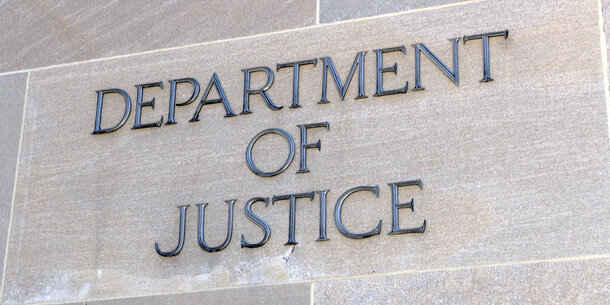This piece was originally published by The Hill.
In far too many criminal courts across the country, judges impose fees and fines on defendants without consideration for their ability to pay. The result: people struggling financially are saddled with debt that makes it nearly impossible for them to support themselves and their families. The devastating consequences of these practices are gaining national attention. In fact, five of the current Democratic presidential candidates have joined the growing outcry against this approach and are trying to address the problem through their criminal justice policy platforms.
Despite promising momentum for change, some government officials hold on, partly under the belief that they need fines and fees to generate revenue. But a hard look at the numbers shows that collecting fees and fines is highly inefficient and costs much more than many policymakers ever realized.
Compared to fines issued with sentences, court fees tend to slip past the public’s attention. Depending on where you live, if you are arrested for low-level offenses such as loitering or possessing a small amount of drugs, you could get charged dozens of fees: a fee for filing your paperwork, a fee for the court to figure out if you qualify for a public defender, a fee for your public defender’s services, a universal fee wholly unrelated to your case (like the one that funds a DNA program), a court technology fee, and more.
We studied fees and fines, observing more than 1,000 hearings in three states and found that, in most places, courts rarely consider a defendant’s finances and what he or she might be able to pay before requiring them to pay mandatory court fees and fines. For people who can’t afford the amount they owe, they become debtors whose bill collectors are judges and the police.
We assessed the costs for state and local governments to enforce and collect fees and fines by analyzing data from 10 counties in Florida, New Mexico, and Texas, as well as state-level data for the three states. The waste that we discovered tell us that every city, county, and state government should look hard at their fees and fines policies. The net gain might be far less than they have imagined, the losses far more damaging.
Because many low-income people can’t pay their debt, billions of dollars in fines and fees go unpaid every year while these debts hang over people, spiraling out of control as penalties pile up. In fact, our report found that from 2012 to 2018, Florida, New Mexico, and Texas amassed a total of almost $1.9 billion in uncollected debt. This debt is made up of millions of tiny debts owed by people who may never be financially equipped to pay them off.
The IRS spends one-third of a penny for every dollar that it collects in taxes. In the Texas and New Mexico counties we studied, the governments spend more than 41 cents of every dollar of revenue they raise to collect the fees and fines they impose in jail costs and in-court proceedings alone. In fact, Bernalillo County in New Mexico operates at a loss in this regard, spending more than $1.17 per dollar it raises in revenue from fees and fines.
But these figures are extremely low estimates of the actual amounts spent on collecting fees and fines. They don’t take into account many of the counties’ investments in this work, like the time and staffing spent on enforcing warrants and suspending driver’s licenses for nonpayment of debts.
We found it impossible to track many of those outlays, despite years of research, because collection and enforcement involves multiple agencies and levels of government, and no one in government is tracking the overall costs.
It’s time for a true accounting of what goes into collecting and enforcing fees and fines — and how that money and time could be better spent to improve public safety.
Communities and their leaders deserve to know the full cost of relying on fees and fines as a source of revenue as it would further shed light on the true economic burden they bear due to fees and fines.
State and local governments can stop placing unjust burdens on poor people and their families. They can start to do so by enacting legislation to eliminate the fees that the court imposes on criminal defendants. In many places, the courts rely primarily on fees for funding, as opposed to taxes, despite the fact that they operate in service to the public as a whole. States and localities should make general tax revenue the primary source of funding for the courts, rather than fees.
States should also reform how they impose fines. To guard against assessing fines that defendants can’t afford, states should require judges to evaluate a person’s ability to pay and then apply a sliding scale to determine the amount.
After digging into the numbers, we can add fiscal irresponsibility and growing burdens to those most impacted by these debts to the reasons to dump these practices. Every jurisdiction using fines and fees must stop and do the math — all of it.



